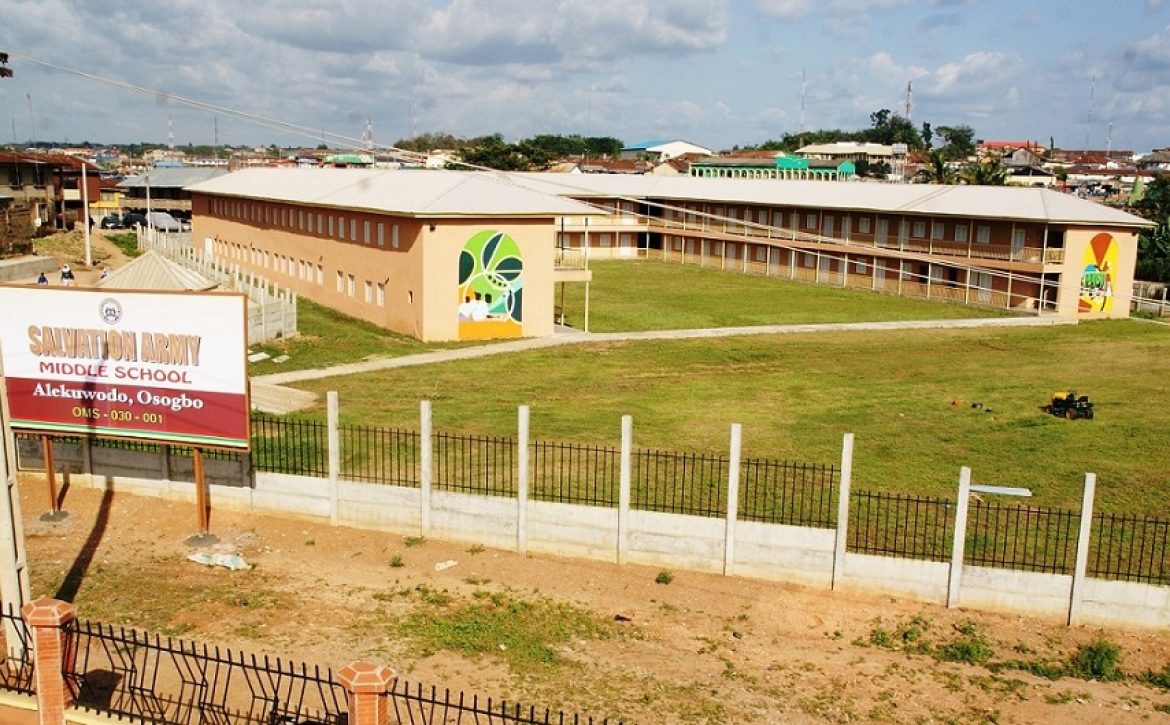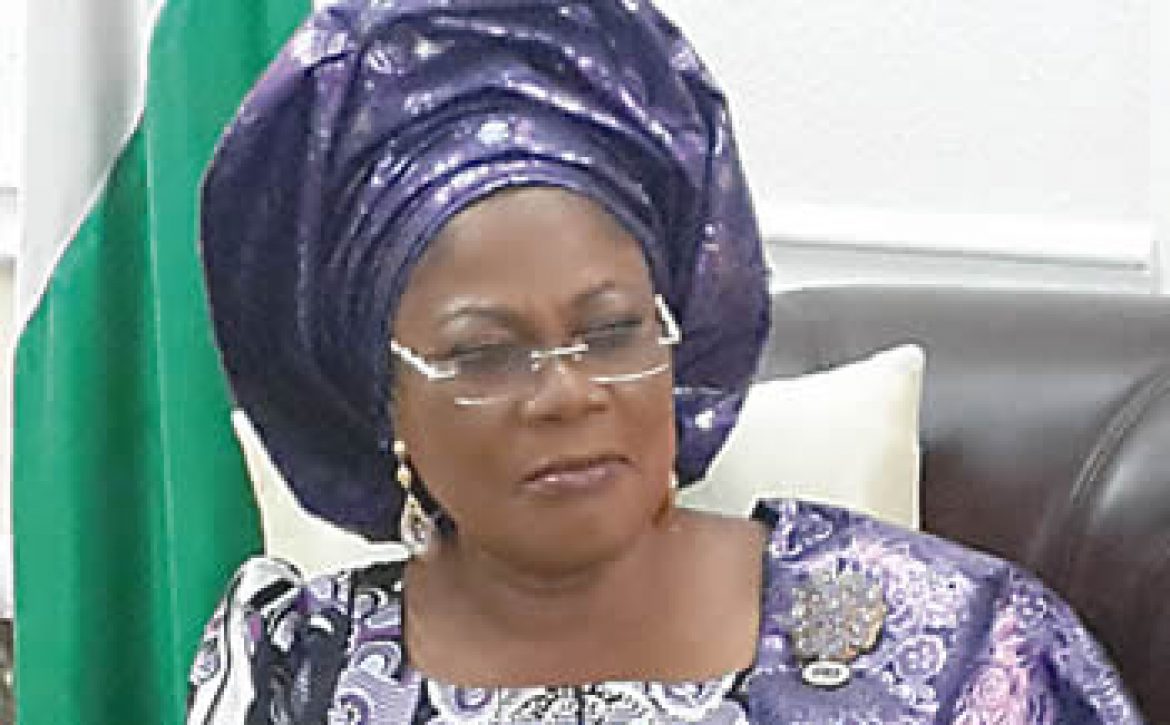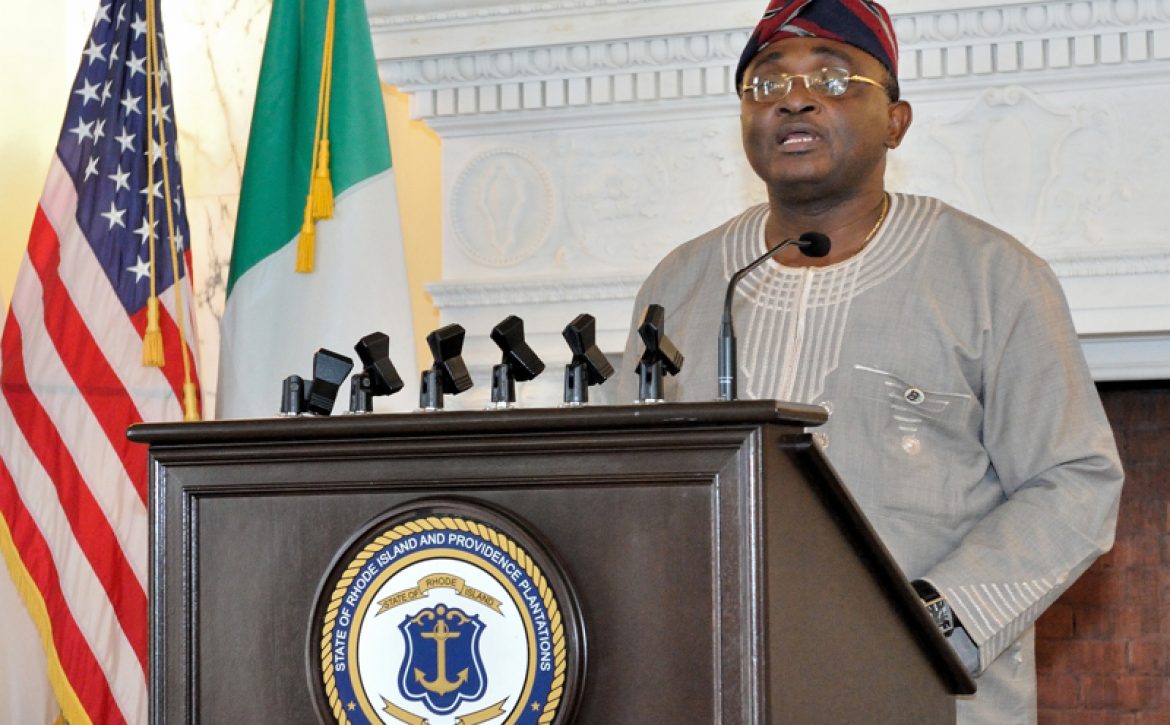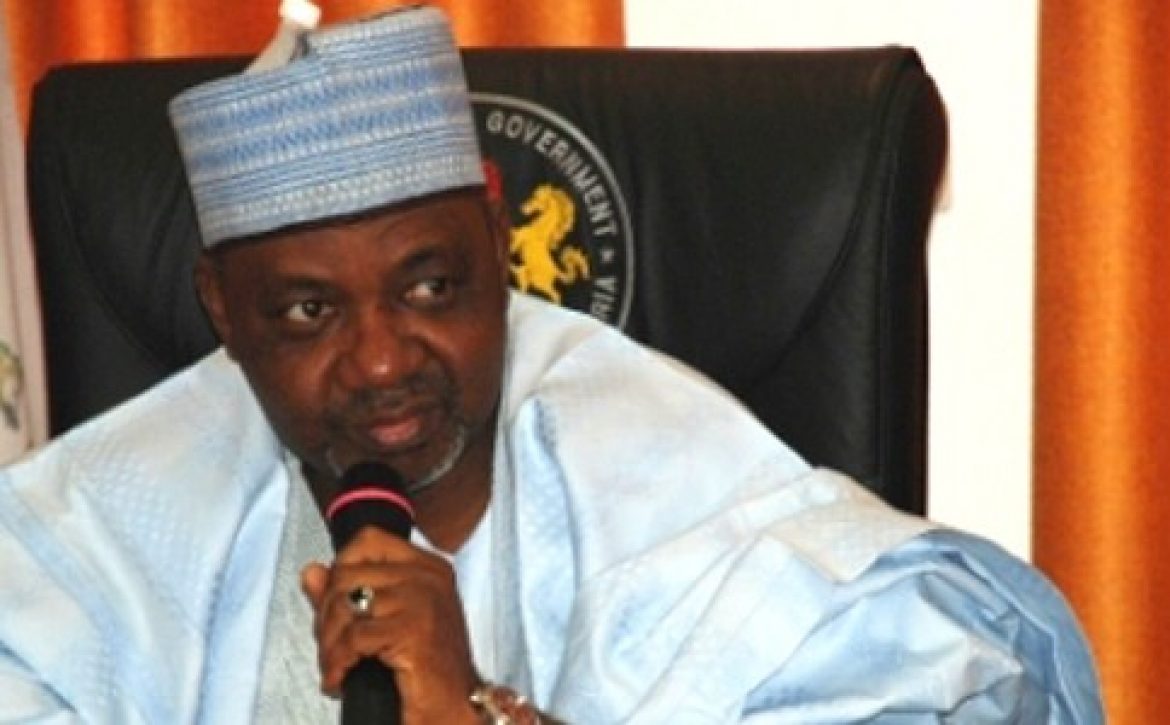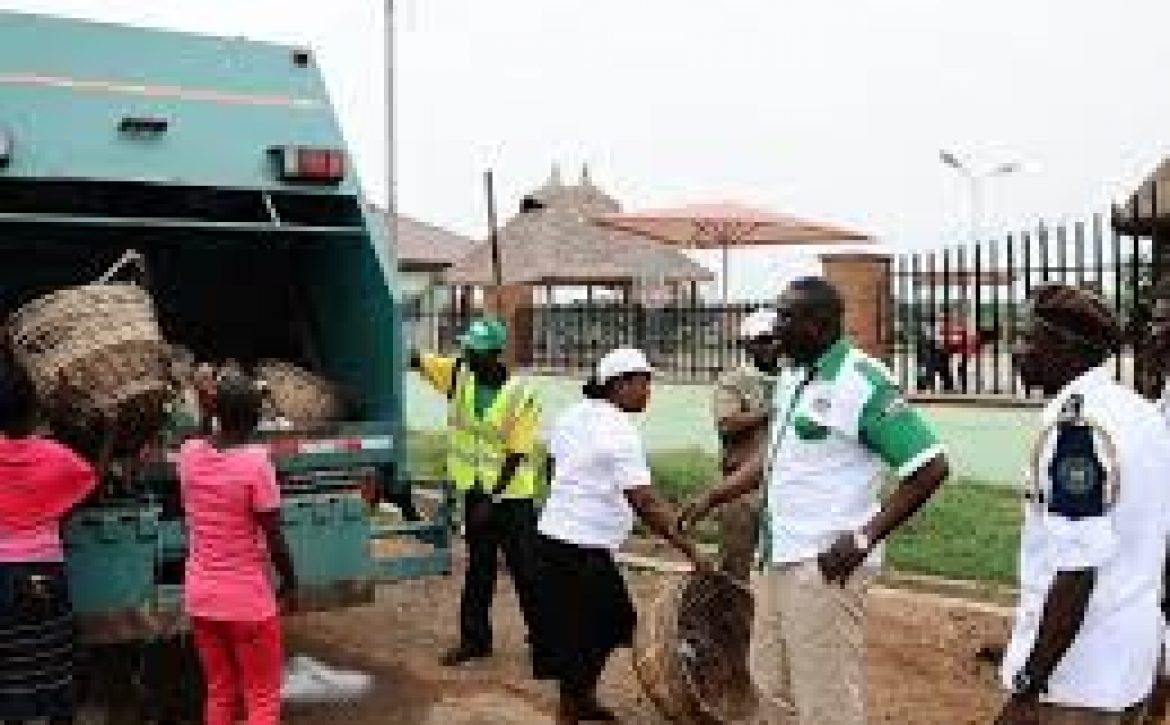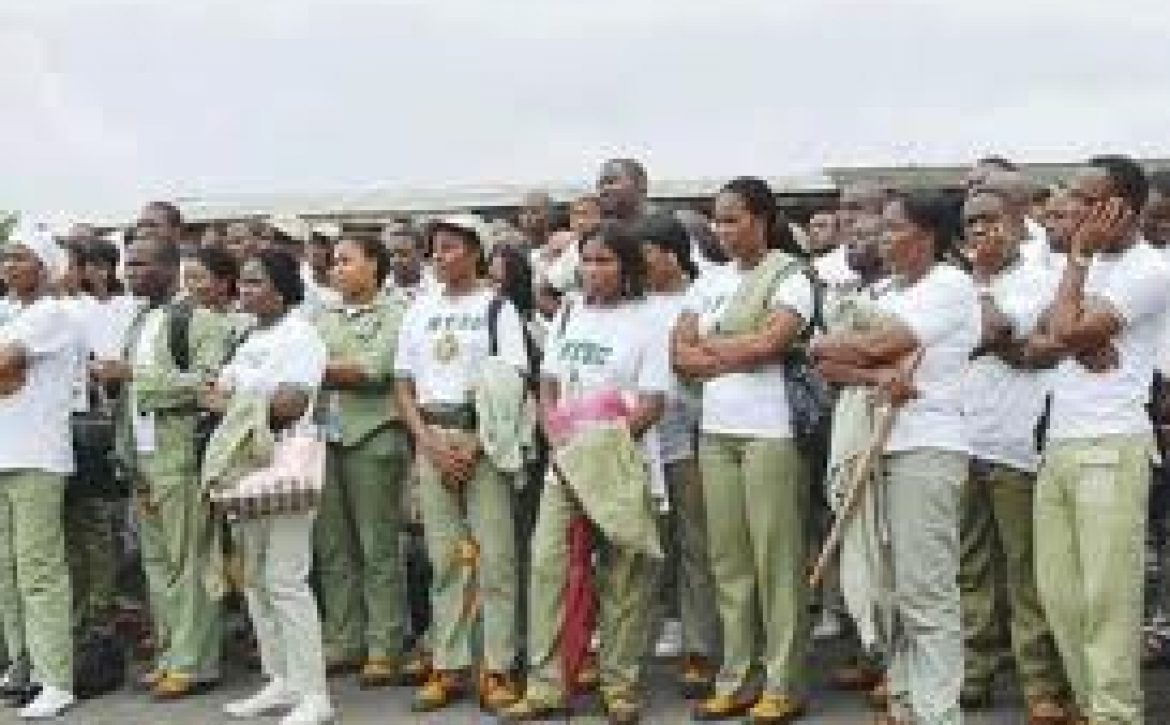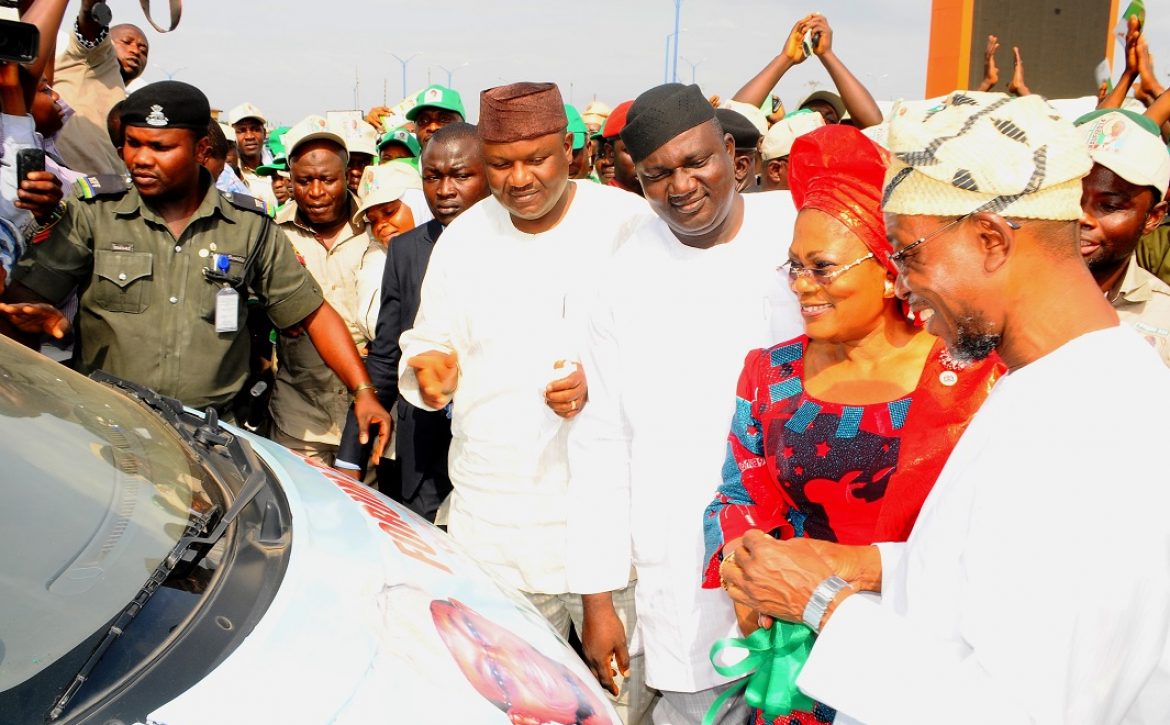
A month after the Government of Osun school reclassification programme took off, pupils, teachers, and others narrate their experiences.
The reclassification of schools in Osun State has not stopped to generate reactions. Some stakeholders have criticised the new education policy, while others have described it as a right step in the right direction.
In the first category are some politicians and the Christian Association of Nigeria who see the policy as a means of undermining Christianity. And those in support of the reclassification have also argued that the step would benefit the pupils who would now learn in a more conducive environment with modern facilities.
However, despite these divergent views, things are gradually taken shape in the various institutions. A visit to some of the schools in Osogbo, the state capital, revealed that pupils, in all grade levels, are gradually integrating into the new system. Some hail the new arrangement, while some others are indifferent. Some others say they miss their friends in the former institutions.
Besides, some parents too express mixed feelings on the issue. As a result of the novel ‘marriages’, some pupils now have to travel some kilometres from their residence to the new schools. They are thus asking the state government to provide free transportation for them.
A 10-year-old Grade 6 pupil of Salvation Army Middle School, Alekuwodo, Abduqudri Abu, says the policy is a good one, because according to him, the school is one of the new ones built by the government, which boasts modern facilities. These include well tiled floors, electricity supply with functional ceiling fans, toilets and water.
He says, “I am enjoying this school. It is better than my former school. It is good and every school should be like this one.”
A secondary school pupil who was transferred from Fakunle Comprehensive High School to Baptist Girls High School, Afeez Abdukareem, explains that he does not see anything wrong in attending the same school with girls, because that was what obtained from where he was coming from. He, however, says he misses some of his friends in his former school who have been taken to some other places.
Another female student who refused to give her name at the Baptist Girls High School says she feels indifferent about the merger, because according to her, no male colleague can influence her to do anything against her wish.
She tells our correspondent, “It is somewhat strange to see the boys joining us, but here we have been trained not to entertain distractions from the opposite sex. Even at home, my parents have always drummed it into my ears, not to be deceived by the opposite sex. So, personally, there is no problem with me.”
Some parents also air their views. Mr. Ade Adeniyi, whose children are attending St. Michael’s C&S Elementary School, wants the Aregbesola administration to provide free buses to transport pupils, stressing that this measure will eliminate the problem of distance which some pupils are facing.
He says, “Though the education policy is good, some things were not considered before it was introduced. And one of them is the distance. Some pupils now have to travel some kilometres before getting to their new school. This is an additional burden on the parents’ hard-earned resources.”
Another parent, Mrs. Omolade Oni, says she sees nothing wrong with having boys being taken to girls school, because, according to her, there is no gender that exist only on their own in the society.
She states, “I went to a mixed secondary school, and I never allowed any distraction from either boys or any other area. I don’t think there is a gender that exists alone in the society.”
But some teachers who were taken to places farther from their former schools lament the merger, saying it was stressful.
The teachers who do not want their names mentioned for fear of possible persecution say they ought to have been consulted before the ‘indiscriminate transfers’ to avoid the problem they are now encountering.
Yet, a national officer of ANCOPSS who is a principal of one of the schools supports the merger. He notes that the policy would afford the government the opportunity to maximise the little resources available. He warns that the policy must be properly implemented to avoid failure.
The state government has however continued to stress that the new education policy is a product of the education summit it organised when it took over the administration of the state.
The Nobel laureate, Prof. Wole Soyinka, was one the personalities at the summit . The government says Soyinka gave his nod to the reclassification model.
Under the reclassification of public schools, pupils from age six to nine years are grouped together in elementary schools. Those who are six years old are supposed to be in Grade 1 while the elementary school ends at Grade 4, after which the pupils proceed to Middle School where they would spend five years from Grade 5 to Grade 9.
At High School, the pupils will spend three years from Grade 10 to Grade 12 after which they would write the final examinations.
The deputy governor, Mrs. Titi Laoye-Tomori, who also oversees the education ministry, says since the introduction of the new policy, school enrolment had soared as some parents have begun to withdraw their children from private schools to public schools in the state.
She says, “The implementation of this reform in the reclassified structure of the schools will ensure a total overhauling and the revamping of the educational system.
“These schools are to be neighbourhood schools, not to be too far from area of residence, trade and work place of parents. The middle school will have students in Grades 5-9 classes; age range of 10-14 years are to be sited within maximum of two to three kilometres from where pupils live and the high school will have students in Grades 10-12 classes – age range of 15-17years.”
Laoye-Tomori adds that the state government has provided a level playing ground in these schools.
“We have provided a level playing ground for our children in the state, irrespective of their family background. The kids see themselves as one. Aside from infrastructure and the feeding programme, government has given free uniforms to students many of who, before now, were badly clad.”
While she argues that it is more economical to cater for 300 pupils in one school than in three schools of 100 pupils each, she hints that the erstwhile school system in the state has schools with as low as 30 pupils as total enrolment in primaries one to six.
She agrees that some classes have more than 40 pupils now because of the ongoing construction of new bigger schools which would replace the dilapidated ones. Laoye-Tomori also allays the fear in some quarters that the reclassification would lead to sacking of teachers. She adds that the state government has recruited 14,890 teachers to tackle the shortage of personnel in public schools.
THE PUNCH
 After the adoption of February 2011 education summit communique in Osun State by Governor Ogbeni Rauf Aregbesola administration, the state has witnessed major reform in the sector. However, the new revolution, has brought about reactions from some stakeholders in the state. The Deputy Governor, Osun State who also doubles as Commissioner for Education, Science and Technology, Iyaafin Grace Titi Laoye-Tomori in this interview with reporters at the State House addressed some lingering questions that surround the reformation of education in Osun. Excerpts:
After the adoption of February 2011 education summit communique in Osun State by Governor Ogbeni Rauf Aregbesola administration, the state has witnessed major reform in the sector. However, the new revolution, has brought about reactions from some stakeholders in the state. The Deputy Governor, Osun State who also doubles as Commissioner for Education, Science and Technology, Iyaafin Grace Titi Laoye-Tomori in this interview with reporters at the State House addressed some lingering questions that surround the reformation of education in Osun. Excerpts:
Your Excellency, why did your government reclassify Osun schools into Elementary, Middle and High Schools?
The Aregbesola Administration on assumption of office inherited an education system that was in a state of complete neglect and rot resulting in dilapidated infrastructure, absenteeism and low school enrolment, overcrowded classrooms, shortage of instructional materials, poorly motivated teachers, with attendant abysmal performance of students in both internal and external examinations.
The need to urgently tackle the situation headlong was the reason for the education summit of February 2011 under the chairmanship of Prof Wole Soyinka. The communique of the summit has been adopted by government for implementation of its education reform agenda.
These reforms include the 0-Meals programme, O-Uniform, Creation of 3 Education Districts and appointment of Tutors General/Permanent Secretary, creation of Teachers Establishment and Pensions Office (TEPO), Opon Imo, Improved funding of schools to mention a few. Thus, the reclassification of schools aims at consolidating the gains of the various reforms to achieve a total overhaul of the education sector.

The new system is in line with global best practices for effective teaching and learning the world over by grouping pupils/ students of same age brackets together in same school environment with provision of relevant and appropriate facilities. Some other reasons for reclassification can be summarized as follows:To avoid multiplicity of mushroom schools that compete with scarce resources of the State.
To pool resources together to enjoy economy of scale for maximization of the scarce resources of the State. It is more economical to cater for 300 pupils/students in one school than in three schools of 100 pupils/students each. Our erstwhile school system in the state has schools with as low as 30 pupils total enrolment in primaries one to six.
It is to remove financial burden of education completely from parents through provision of modern facilities, furniture and improved funding. To democratize education and provide equal opportunities for all pupils/ students without discrimination. To make our public schools to be comparable to the private schools in terms of facilities and to reduce pupils/ students to teacher ratio from the current abnormal rate of 60-100 pupils/ students to a teacher to the UNESCO standard.
What are the features of the new school system ?
Under the new school system, the old primary and secondary education sector is reclassified into Elementary, Middle and High schools with the following features:
 Elementary School:
Elementary School:
Pupils will be in Grades 1-4 classes; age range of 6-9 years. They are to be neighborhood schools, not to be too far from areas of residence, trade and work place of parents. Daily activities will run from 8 am to 2 pm with enrollment at maximum capacity of 900 pupils in cities and big towns but those in rural communities may have less population.
Purpose built state of the arts school, securely fenced and equipped with modern facilities.
Other programmes that are specially designed to enhance this new school structure for optimal performance include; 0- Meal school feeding programme, provision of unified school uniform for all pupils, increased schools’ running cost and examination grants, and supply of instructional materials as well as customized exercise books. Middle School:
Students will be in Grades 5-9 classes; age range of ID-14 years. Daily activities will run from 8 am to 3 pm and to be sited within maximum of 2-3 kilometers radius of where students live. Enrollment of 900 pupils to 1000. Purpose built state of the arts school, securely fenced with modern facilities. Provision of unified school uniform, increase schools’ running cost and examination grants, supply of instructional materials and customized exercise books. High School:
Students will be in Grades 10-12 classes; age range of 15-17 years. Enrollment to be 3000 students; a 3-schools in -1 complex at 1000 students per school. Daily activities to run from 8 am to 5 pm. Purpose built state of the arts school with modern facilities including boarding facilities, staff quarters, standard laboratories, food courts, standard sporting facilities, school hall of 1000 minimum sitting capacity and School Managers for proper facility management. Provision of unified school uniform, supply of Opon Imo, increased schools’ running cost and examination grant, payment of WASCE fees, etc
A general feature of the new school system is the provision of standard furniture for all pupils/students and teachers thereby abolishing the obnoxious practice of bringing furniture from homes by students, especially in the erstwhile secondary schools.
Your Excellency, don’t you think the new school system may conflict with the National Policy on Education (NPE)?
The new system does not conflict with the National Policy on Education, especially the modified 9-3-4 and the National Curriculum still in use in Nigeria. Under the new system, the only change is the removal of Primaries 5 & 6 from the primary school sector to join the former Junior Secondary School to form the new Middle School. This makes transition to secondary school easy and automatic for Elementary School pupils.
Our new system of 4-5-3-4 is simply a strategic re-arrangement of public school pupils and students for proper grooming and optimal management of schools. This will stem and eradicate the out-of-school syndrome in the State of Osun. Pupils/students in Osun still spend 12 years on basic education as stipulated by the NPE and are taught the same curriculum as pupils/students elsewhere in Nigeria.
Pupils/students will also be able to transfer freely into and out of Osun schools. Out going pupils/students will be awarded testimonials to confirm the existing grades with which they can be admitted in to an appropriate class elsewhere in the country. Similarly, incoming pupils/students will be assessed and place in grades appropriate for their ages.
Presently, the public schools in Osun have 3 basic uniforms, how will students of various schools be differentiated?
Each school will affix its badges on the caps/berets and on the uniforms.
Your Excellency, will the new system not lead to pupils/students having to trek long distances from their homes to schools?
The movement of pupils and location of the new school sectors has been done in such a way that pupils of Elementary School in particular will not be far away from their homes or places of trades/work of their parents. In fact the new Elementary Schools are referred to as neighborhood schools on account of their location and proximity to pupils.
Middle Schools have also been located within maximum of 2-3 kilometer radius to places of abode of students. On the other hand, High Schools are located in the outskirts of towns, mostly on old school premises that have large compounds. The High Schools will also have boarding facilities for interested students and staff quarters for teachers.
Will the exercise not lead to loss of jobs by teachers since there will be fewer schools now?
Like the Head- teachers and Principals, teachers and other workers in the education sector will not lose their jobs in the new school system. Teachers will relocate with their pupils/students as the case may be. Members of the public should be mindful of the fact that the government is conscious of the job security of its work force.
The new school system cannot lead to job loss, instead, additional job opportunities will be created because more qualified hands will be required to achieve the many reforms envisaged by the Ogbeni Rauf Aregbesola Administration. Rather than teachers losing their jobs, more teachers will be required as a result of the smaller class sizes arising from the re-classification.
Will the new system favour existence of single sex schools as we have in some secondary schools presently?
As part of its general policy to reposition education in the state, government has phased out single sex
schools in the secondary education sector as this is no longer the practice the world over. Government ispoised to provide standard world class facilities in all our schools and give equal opportunities to all our pupils/students in co- educational setting.
In fact single sex schools will run contrary to the new high school concept and arrangement where we will have fewer schools with larger population of 3000 students per school.
The argument in favour of single sex schools has largely been based on the claim that single sex schools perform better at examinations. However, empirical study has not corroborated this.
A compelling argument in favour of the mixed school system is that it produces a more rounded child ready for the world in which both sexes co-habit the space.
Both sexes living and working together is the natural way humans were designed and it is better to let the pupils experience and learn to accept the consequences of this arrangement in their adolescence.
The third argument is that it is indefensible for a publicly funded institution to deny admission to any
child based on gender if the school in question is the most logical and suitable for the child to attend.
In Osun, it is a policy decision that all public schools will be co-educational (mixed).
Will the new system not lead to loss of identities/ names by the present schools especially the mission schools?
There are no mission schools presently in the State of Osun as all schools were taken over by the government in 1975. It is on record also that majority of the previous owners were compensated at the time although some proprietors declined the compensation. The position in Osun today and indeed all over Nigeria is that all schools are 100% owned, staffed and funded by the state government.
The take-over of schools in 1975 stopped short of changing their names apparently as a mark of respect for the original owners. Be that as it may, the new school system does not tamper with names of schools whether old schools that were re-classified or newly built model schools. A good example is the Salvation Army Middle School at Alekuwodo in Osogbo which was formerly known as Salvation Army Primary school.
Will the new school system not lead to extinction of Old Students Associations?
The new school system does not preclude alumni associations. Old students can always locate themselves not minding where their school is now located. We have seen instances in the past wherein schools were re-classified or re-named and their old students still associate and meet. ‘,
How will students whose schools will no longer exist have access to their records?
Government has made adequate arrangement to ensure safe keeping of all records of pupils/students that may be affected in the exercise. Relevant departments of the State Ministry of Education will ensure that records are kept properly and safely.
Will the new system not lead to religious conflict when pupils/students are moved without considering religion sensibilities or to put it mildly, is the new system religion sensitive?
Religion has not been a factor in the re-classification exercise. We hope that pupils, students, parents and teachers will exhibit the required level of religious tolerance for a peaceful co-existence in the schools which are primarily designed for learning as opposed to the propagation of any religion
Will Muslims pupils/students who choose to wear hijab to school be allowed such in Christian schools?
The issue of hijab remains a controversial issue which predated the re-classification exercise. Dialogue is ongoing with various religious organisations and there will soon be an amicable resolution after which a definite policy decision will be taken. While this is being done, students either Christian or Muslim should ensure that they maintain peace within and outside the school environment.
Why does government not provide the new model school buildings before the re-classification and movement of pupils/students?
Perhaps it should be emphasized that the mandate of the Agency that is saddled with the responsibility of constructing the state-of-the-art schools is different from the re-classification exercise of the new school system. As part of the total reforms of education sector in the state, Government is embarking on building of state-of-the-art schools to replace the dilapidated structures that were inherited.
However, there is no doubt that the new schools being built will complement the re-classification exercise. Infrastructure upgrade was not a pre-condition for re-classification. All that has happened with re-classification was that pupils/students now resume in the appropriate classes. The re-classification has not increased the enrolment; hence the pre-reclassification facilities will still be available to support the post-reclassification needs.
Will the new school system not rob communities, especially in rural areas of their only schools or don’t you think they are likely to resist the move?
The pupils in rural schools are not moved because of distance and certain peculiarities. Such schools have been re-classified. Government will upgrade rural schools to meet the acceptable modern standard as in the urban areas.
Were the relevant stakeholders in the education sector like NIREC, missionary owners of schools, NUT, ANCOPSS, AOPSHON, PTA, NLC, etc consulted and carried along in the exercise?
All relevant stakeholders in education in the state including all those mentioned and some others were consulted and were part of the committees that handled the re-classification at the State and Local Government levels. Each of the bodies contributed meaningfully to achieve an acceptable re-classification exercise.
What becomes the fate of teachers, head teachers and principals in terms of career progression?
Career progression is a purely an establishment matter and the re-classification has nothing to do with it. In fact, the Aregbesola Administration for the first time in the history of the State has created a new Agency, Teachers Establishment and Pension Office, (TEPO), headed by a Permanent Secretary for a more efficient handling of teachers’ establishment matters.
VANGUARD

November 2 2013 was another day of glory for Ogbeni Rauf Aregbesola Governor, State of Osun in Providence, Rhode Island United
States of America. This was the occasion of the 4th Lecture series of the annual Yoruba Elders International Society, where the Director General, Bureau of Social Services, Femi Ifaturoti delivered the keynote address on the first day of the ‘WHAT WORKS TOUR’ organized by the Society.
In his keynote address Ifaturoti signposted Ogbeni Aregbesola’s innovative approach to governance, especially, his establishment of
the Osun Youth Empowerment Scheme (OYES), arguably the most audacious program ever initiated by any government , State or Federal. within 97 days of assumption of office as Governor.
In his own presentation, Professor Foluso Okunmadewa Sector Leader, Human Development World Bank Nigeria office told the audience comprising the representatives of Governor Lincoln Chaffe, Governor of Rhode Island, Michael Solomon, President of the Council of Providence, Mr Lombardi, former Mayor of Providence, the Executives and Council of the Yoruba Elders Society, that the World Bank received inspiration from Ogbeni Rauf Aregbesola’s OYES progamme in establishing YESSO, which is a support program designed to be a replica of Ogbeni’s vision across Nigeria, and that it is available for eligible States, of which Osun is at the forefront.
The President of the council of Providence Mr Michael Solomon expressed profound admiration of Ogbeni Aregbesola’s bold initiatives, and wished him success at every stage. The Yourba Elders International Society presented an Excellence award plaque to Ogbeni Aregbesola, which was received on his behalf by Mr Femi Ifaturoti, the Director General, Bureau of Social Services, State of Osun, Nigeria.

Sanusi recently noting that the Osun State Government successfully issued a sub-sovereign Sukuk worth N10 billion for building public schools and the issuance was oversubscribed said “The issuance which was oversubscribed and had a full up take by the originator shows the buoyancy of our capital market and its need to take up new alternative instruments,”.
Following the efficacy of Islamic finance in attracting liquidity, the Central Bank of Nigeria (CBN), Debt Management Office (DMO) and the Infrastructure Concession Regulatory Commission (ICRC) are exploring ways to use Sukuk to build airports, railways and refineries.
Speaking at the National Conference on Islamic Banking and Finance in Nigeria, yesterday, in Abuja, the CBN Governor, Mallam Sanusi Lamido Sanusi, said that, in view of the potentials of Sukuk to develop economies in building infrastructure, the CBN in conjunction with other sister institutions like the Securities and Exchange Commission(SEC), ICRC, DMO have assembled a technical team to explore the prospects of alternative modes of finance and set out the procedures for using the modes in the development of infrastructure.
He stated that the team have identified potential projects that could be financed by sovereign and sub-sovereign Sukuk.
“These projects include upgrade, maintenance, repairs and new construction of roads and highways; upgrade, renovation and new construction of airports, rehabilitation of the rail line and the building of a new rail line and railway stations. Part funding for the construction of the planned three refineries and mass housing and light rail for some states in the federation,” he said.
This, he said, is in addition to the role that Sukuk issuance serves in deepening domestic capital markets.
Sanusi noted that the Osun State Government successfully issued a sub-sovereign Sukuk worth N10 billion for building public schools and the issuance was oversubscribed.
“The issuance which was oversubscribed and had a full up take by the originator shows the buoyancy of our capital market and its need to take up new alternative instruments,” he said.
To further underscore the importance of Islamic Sukuk, the governor hinted that the Prime Minister of United Kingdom, David Cameron, announced the plan to make London not just a capital for Islamic finance to the western world, but one that will stand alongside Dubai and Kuala Lumpur as one of the great capitals of Islamic finance, anywhere in the world.
“The UK plans to do this through the issuance of an Islamic bond Sukuk worth 200 million GBP by the UK Government which it intends to do as early as next year. It also plans to create an islamic index on the London Stock Exchange for Shariah-compliant securities to attract more islamic investors.”
“The UK is embarking on this plan despite the fact that it is a non-Islamic country which illustrates what we have been saying that Islamic finance, though based on sharia, is a financial product with clear goals and it is accessible to all,” he said.
SUN NEWSONLINE
The Bi-monthly Environmental Sanitation Exercise scheduled for Saturday, 9th November, 2013, has been postponed, due to National Examinations Council (NECO) examinations holding on the same day.
The Special Adviser to the Governor on Environment and Sanitation, Hon. Bola Ilori disclosed this in Osogbo.
According to Ilori, the postponement was due to the National Examination Council (NECO), Mathematics’ examination expected to hold on same day.
On the school re-classification programme of the Aregbesola administration, Ilori applauded the courage of conviction and determination of the governor to turn the education sector around for the future of the state.
According to him, with the comprehensive overhaul of the system, the O’ School concept, the introduction of Opon Imo [Tablet of Knowledge] and other reformatory steps taken by government, students in Osun schools have been given an ”unfair advantage” over their peers in public schools across the country.
He called on the critics of the education policy to avail themselves of the information available in the public domain on the direction of government, noting that in a knowledge-driven world that we now live in, all hands should be on deck to ensure Osun produce students who can compete globally instead of looking at all issues from the prism of politics.
Ilori, charged the people to go about their normal activities and ensure that they keep their environment clean despite the postponement of the environmental sanitation.
BIOREPORTS
The State of Osun House of Assembly under the leadership of the Speaker, Rt. Hon. Najeem Salaam have confirmed the appointments of the officers of the State House of Assembly Service Commission and the State Civil Service Commission after two separate motions were moved.
Motion to confirm the appointments of the Chairman and members of the State Assembly Service Commission was moved by Hon. Afolabi Atolagbe representing Ifedayo State Constituency and seconded by Hon. Ademola Ajiboye representing Ila State constituency, while that of the State Civil Service Commission was also moved by Hon. Afolabi Atolagbe and seconded by Hon. Babatunde Komolafe representing Atakumosa East and West State Constituency.
The State House of Assembly Service Commission has as its chairman Hon. Hassan Olawuwo (Ifelodun) while members include; Hon. Goke Awotunde (Oriade), Hon. Amos Akjndiya (Olaoluwa) and Hon. James Fasakin (Orolu). Others are Hon. Olagundoye Adegboyega (Ife South), Hon. Kunle Kudaisi (Olorunda) and Alhaji Adegboyega Afolabi (Boripe).
Also, the State Civil Service Commission has as its Chairman, Alhaji Lasisi Olawale (Osogbo) while members include Prince Oluwole Oyebamiji (Egbedore) Alhaja Samrat Bolanle Alabi (Irewole), Prince Awobiyi Robert Ayodeji (Atakumosa East/West) and Mr. Popoola Gabriel Onaadepo (Ifedayo).
Speaking after the confirmation, the Speaker, Rt. Hon. Najeem Salaam commended Governor Rauf Aregbesola for taking time to select people with a wealth of experience and impeccable character to man the affairs of the two important commissions.
While appreciating the contributions of the honourable members of the State House of Assembly towards moving the state forward, the Speaker said every effort will be made to give autonomy to the State Assembly Commission in the discharge of its duties.
OSUN NEWS PORTAL
 The Government of the State of Osun will continue to make the welfare of its CORP Members’ top priority. This was stated today by the Governor, State of Osun, Ogbeni Rauf Aregbesola, at the swearing-in ceremony of 2013 Batch ‘C’ set of corps members deployed to the state.
The Government of the State of Osun will continue to make the welfare of its CORP Members’ top priority. This was stated today by the Governor, State of Osun, Ogbeni Rauf Aregbesola, at the swearing-in ceremony of 2013 Batch ‘C’ set of corps members deployed to the state.
The Governor who was represented by the Commissioner for Youths, Sports and Special Needs, who also doubles as the Chairman, NYSC Governing Council in the state, Hon. Stephen Kola-Balogun promised to make the corps members’ stay in the state an enjoyable one.
He enjoined the corps members to join hands with the State Government and participate actively in programmes such as healthcare delivery, enlightenment on MDGs, adult literacy among many others.
Earlier in his address at the event, the Chairman of the NYSC Governing Council in the State, Hon. Stephen Kola-Balogun represented by the Special Adviser to the Governor on Youths, Sports and Special Needs, Comrade Biyi Odunlade observed that the orientation programme is to instill perseverance, discipline, endurance and peaceful co-existence in the corps members. He therefore charged them to be of good behaviour while in the state.
OSUN NEWS PORTAL

The entire body of lawmakers at local governments in the State of Osun under the umbrella of Forum 332 have endorsed the governor, Ogbeni Rauf Aregbesola, for 2014 governorship.
In his speech, the Forum 332 Coordinator, Mr. Yinka Olayiwola, said their decision was informed by the performance of the governor virtually in all spheres of the state’s development.
The Forum, which encompasses all 332 wards in the whole state, said the state has never experienced exemplary political and economic reforms and transformations until the advent of the Governor Aregbesola administration. According to the forum spokesman, the focus of the administration hinges on road network, rural integration and massive infrastructure development which have made lives better at the grassroots.
“The conscious objective of this administration is urban and rural integration development as witnessed through the powerful road networks across all the local government in the State of Osun. This has made our lives at the grassroots better than ever before and the local government turned around by the governor is a milestone. The entire 332 councillorship candidates under the Forum 332 hereby support and endorse the second term of Ogbeni Rauf Aregbesola as the Governor of the State,” Olayiwola said.
He promised that the Forum 332 is at all times ready to support and transform the vision of Ogbeni’s administration into reality. The group then presented three Toyota Sienna vehicles to the campaign structure as a demonstration of their commitment to the governor’s second term in office.
In his response, Aregbesola commended the Forum for its continued support and belief in his government. He said within three years, his administration has enthroned peace and security which in turn has engendered development.
“We have spread the tentacle of development to all nooks and crannies with our programmes such as youth empowerment, school feeding scheme, welfare for the highly vulnerable old people, road construction and provision of other social amenities. As elections draw nearer, I want all of you to go back to your constituencies and mobilise for support,” Aregbesola said.
He warned people in the state not to sell their voter’s card, which they will use to exercise their civic rights, urging them to protect their votes as well.
The APC Chairman in the state, Elder Lowo Adebiyi, said the governor’s good performance informed his endorsement for second term. He advised the Forum to also perform their responsibilities in their own sphere of influence as the governor is doing in the state.
Adebiyi warned that APC is not a party known for violence and thuggery, assuring that the party has come to salvage what was an already bad situation before the Governor came in.
Photos from the Presentation of Support Vehicles and the Endorsement of Governor Aregbesola for a Second by the ‘Councillorship’ Forum 332 at Freedom Park, Osogbo the State of Osun, on Tuesday 05-11-2013

From right, Governor State of Osun, Ogbeni Rauf Aregbesola; his
Deputy, Mrs Titi Laoye-Tomori; Chairman, All Progressive Congress
(APC) Osun chapter, Elder Adelowo Adebiyi; Secretary Osun APC, Prince
Gboyega Famodun and others, during the Presentation of Support
vehicles and Endorsement of Governor Aregbesola for Second term running by the Councillorship Forum 332 at Freedom Park, Osogbo the
State of Osun, on Tuesday 05-11-2013

Governor State of Osun, Ogbeni Rauf Aregbesola (4th left); his Deputy,
Mrs Titi Laoye-Tomori (3rd left); Secretary to the State Government of Osun, Alhaji Moshood Adeoti (2nd right); Chairman, All Progressive
Congress (APC) Osun chapter, Elder Adelowo Adebiyi (2nd left);
Secretary Osun APC, Prince Gboyega Famodun (left); State Chairman,
Councillorship Forum, Mr Yinka Olayiwola (right) and others, during the Presentation of Support vehicles and Endorsement of Governor Aregbesola for Second term running by the Councillorship Forum 332 at
Freedom Park, Osogbo the State of Osun, on Tuesday 05-11-2013

From right, Governor State of Osun, Ogbeni Rauf Aregbesola; his Deputy, Mrs Titi Laoye-Tomori; Chairman, All Progressive Congress
(APC) Osun chapter, Elder Adelowo Adebiyi and Secretary Osun APC,
Prince Gboyega Famodun, during the Presentation of Support vehicles
and Endorsement of Governor Aregbesola for Second term running by the
Councillorship Forum 332 at Freedom Park, Osogbo the State of Osun, on Tuesday 05-11-2013

From right, Governor State of Osun, Ogbeni Rauf Aregbesola; his Deputy, Mrs Titi Laoye-Tomori; Chairman, All Progressive Congress (APC) Osun chapter, Elder Adelowo Adebiyi and Secretary Osun APC, Prince Gboyega Famodun, during the Presentation of Support vehicles and Endorsement of Governor Aregbesola for Second term running by the
Councillorship Forum 332 at Freedom Park, Osogbo the State of Osun, on Tuesday 05-11-2013

Governor State of Osun, Ogbeni Rauf Aregbesola (right) acknowledging
cheers from the State of Osun Councillorship Forum 332, during their
Presentation of Support vehicles and Endorsement of Governor Aregbesola for Second term running by the Forum at Freedom Park, Osogbo the State of Osun, on Tuesday 05-11-2013
 How time flies! It’s just like yesterday that the ebullient governor of the state of Osun, Ogbeni Rauf Adesoji Aregbesola was sworn in as the duly-elected governor of the state in the 2007 governorship election having eventually won the protracted battle to reclaim his stolen mandate at the Court of Appeal, Ibadan late 2010.
How time flies! It’s just like yesterday that the ebullient governor of the state of Osun, Ogbeni Rauf Adesoji Aregbesola was sworn in as the duly-elected governor of the state in the 2007 governorship election having eventually won the protracted battle to reclaim his stolen mandate at the Court of Appeal, Ibadan late 2010.
Come November 26 it will be three years exactly that Ogbeni Aregbesola assumed responsibility as the governor of his state. Three years on the good people of Osun state have had a taste of good governance in unprecedented term. Virtually all sectors in the life of that state have witnessed transformation such that today the people are happy that they did not waste their mandate by voting Engineer Aregbesola as their governor in the last gubernatorial election. Their expectations are being met as dividends of democracy are being delivered on their doorsteps like never before.
No doubt the state of Osun has undergone a fruitful democratic sojourn in the last three years under the able leadership of Ogbeni Aregbesola. In the past three years since the responsibility of steering the ship of his state fell on him it has been a different ball game entirely as governance has moved from the pedestrian, zero result level – as obtained during the lacklustre Oyinlola era – to an unusual, creative and focused level with its accompanying profitable results for the good people of Osun. We are of the belief that any sane mind cannot but agree that correct assertions are being made here.
As we are about entering election year this paper sees it as a matter of duty to start reminding our people about their responsibilities. And their responsibilities include registering to vote, voting right and monitoring their vote. They did it in 2007 and today having got value for their vote under Ogbeni Aregbesola’s administration the onus is on them to ensure that the status quo remain. And the status quo can only remain by their support i.e they should continue to give their total support to Ogbeni Aregbesola. They have been supporting the government no doubt. The coming election will however offer them better opportunity to express their support in practical terms. That is when the governor himself will be able to know that the people really appreciate the fact that he has been working for them.
Practically the people of Osun can only express their support for Ogbeni Governor by returning him with their vote. By doing this they must have voted right. And to vote right means to continue to enjoy dividends of democracy (at least) for another four year term. It’s important this is done so as to consolidate their gains. Of course no one will like to eat his food with bitter or saltless soup. To do that will be totally unpalatable. Having tasted a working government it won’t augur well for the state to allow mediocre politicians of yesterday with blurred vision to come back on stage. In fact, that will not only be counter-productive, it will basically be disastrous for the state and its people as those who had nothing positive to showcase for the luxury of power they enjoyed for almost eight years cannot come now to sweet-tongue us about having any good plans for the state. Ask them; if truly they had good plans, why didn’t they execute it while in power? This is an obvious case.
Thus as it is obvious that these plotting-to-come-back politicians have nothing to offer so is it also obvious that the future of Osun is assured with Ogbeni Aregbesola. As a leader he has been tested and he has passed. He is therefore a tested and trusted candidate. He has not let the people down and for this he deserves to be re-elected. For the good work to continue in the state of Osun the power is in the hands of the people and we are very much optimistic that they will not misuse their voting power.
OSUN DEFENDER


